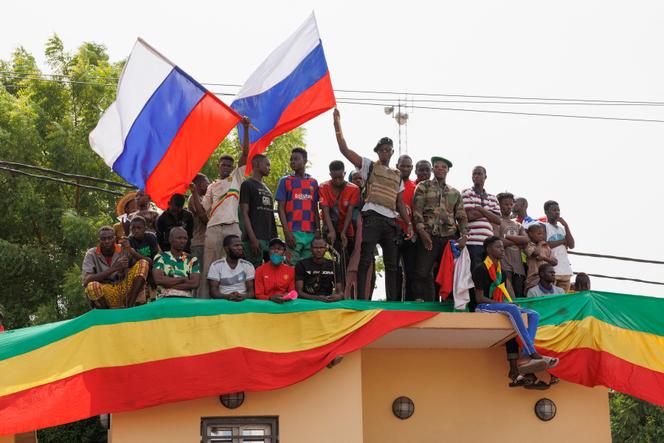


A clandestine pro-Russian online operation targeted French speakers in Africa with "deceptive" AI-generated posts in a campaign likely directed by Moscow, a French government agency said, in a report on Thursday, June 12. Moscow has sought to expand its influence in Africa in recent years, including in former French colonies, through campaigns using grassroots activists and social media. France's Viginum agency, which counters foreign disinformation campaigns, linked Moscow's "clandestine digital activities" to a Russian news agency openly operating in Africa, called African Initiative.
With a Moscow address, African Initiative publishes in five languages, including English and French, and runs journalism courses and press trips in Africa. Viginum said the news agency appeared to have set up an operation, which it called "deceptive," posting AI-generated images, text and video and using "malign techniques" to boost views.
The operation using pseudo-media outlets was "likely" run by a web marketing company subcontracted by African Initiative, the report said. Dozens of automated accounts also disseminated links to the sites on blogs, with posts appearing to be AI-generated and sometimes translated from Russian, Viginum said.
The websites ran several thousand articles, largely on non-political topics such as cinema, sport and music, in an apparent bid to get linked to by other media, the report said. Despite the complex structure, the operation did not rack up many views and the sites appear to have been inactive since December, the French agency said.
The Wagner group had previously played a key role in such operations, but Moscow has apparently moved to centralise control of information operations since the group was disbanded and reorganised following the death of its leader Yevgeny Prigozhin, in a 2023 plane crash.
African Initiative has become "a key element in the restructuring and implementation of Russia's information and influence strategy in Africa" after Prigozhin's death, the Viginum report said. Its "activities are likely directed by the Russian state apparatus, particularly the Russian intelligence services," it said. Presented as an independent publication, its reporters include the former press secretary for Wagner's office in Saint Petersburg.
Viginum released its findings after Meta in August 2024 said it had removed Facebook accounts targeting French-speaking African countries that promoted Russia's role in the region and criticized France.
OpenAI, the company behind ChatGPT, later said it had banned accounts based in Russia from using its language models to generate images, comments and articles in English and French, which have been posted on sites posing as news media in Africa.
